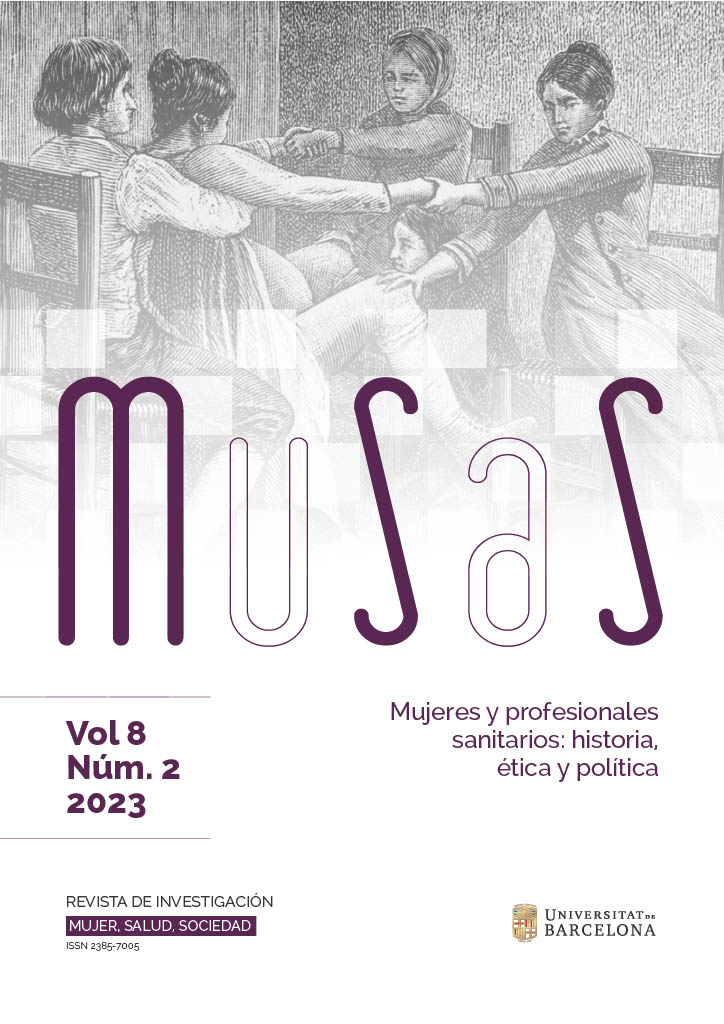Late Motherhood, a Feasible Fact? Bibliographic Analysis from a Medical/Health Perspective
DOI:
https://doi.org/10.1344/musas2023.vol8.num2.8Keywords:
Maternity, Infertility, Maternal age, Gestation, Nursing, Complications, Advanced ageAbstract
Introduction. The Spanish population has tended to increase the average age of childbearing in recent years, mostly due to modern lifestyles. This fact is linked to the decrease in the birth rate, since with age there are changes in women’s physiology that make pregnancy more difficult, which is reflected in the increase in assisted reproduction techniques. Objectives. This article aims to analyze the possible complications women may have when trying to conceive, during pregnancy, childbirth, and postpartum. Method. A bibliographic review of the last 5 years was carried out using the databases PubMed, sCielo and Medline, and the medical journals ASRM and Revista Sinergia, the protocol on pregnancy follow-up in Catalonia and the clinical practice guide on pregnancy of the Ministry of Health were consulted. Results. A total of 6 articles were included, 4 original quantitative articles and 2 literature reviews. The results obtained refer to the effects of late gestation, the technologies available for reproduction, pathologies that can appear in this type of pregnancy as well as the differences between multiparous and primiparous. Conclusions. Technological and medical advances make it possible to conceive a pregnancy at an advanced age with few associated risks. There is a lack of studies on the nursing approach, the social and demographic variables and the pathophysiological aspects involved in this type of pregnancy.
Downloads
Published
Issue
Section
License
Authors publishing in this journal agree with the following terms:
- Authors hold the copyright, but MUSAS holds the right of first publication.
- Manuscripts will be disseminated with the Creative Commons CC BY-NC license, which allows sharing it with third parties as long as they recognize the authorship, the first publication right held by MUSAS and the license’s conditions






